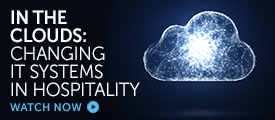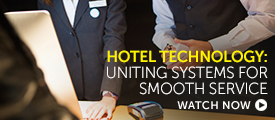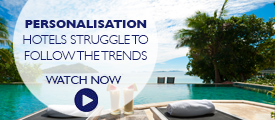The latest data from Cisco suggests that by 2019, more than four-fifths (86%) of workloads will be processed by cloud data centres and only 14% will be processed by traditional data centres. Cloud has been a game changer in all businesses, but in hospitality there has also been widespread upgrading of PMS and the introduction of customer relationship management (CRM) systems.
In these videos our experts discuss how the right technology systems can really make a difference:
Cisco’s statistics show that global cloud IP traffic will more than quadruple (4.1-fold) over the next 5 years. In the digital economy data use is rising fast. Cisco report that the workload for cloud data centres are already higher than traditional data centres, and this is increasing. Cisco say that “the workload density (that is, workloads per physical server) for cloud data centres was 5.1 in 2014 and will grow to 8.4 by 2019.”
A separate report by Fruition Partners suggests that switching to the cloud requires careful management. It revealed a fear in “85% of CIOs in the UK and US that cloud is reducing their organisations’ control over IT.” Using cloud systems and teaming up with technology partners with specific expertise is worthwhile part of modern business, but as with any change it should be carefully thought through to ensure it gets maximum results.
If you’ve been sent to this page and you’re not yet on the circulation list to receive these regular briefings and you would like to sign up, you can do see here. It’s free.
Video clips produced by ybc.tv for the Hospitality Channel, including interview from industry conferences such as the IHIF conference as well as specific Hospitality Channel shoots.




